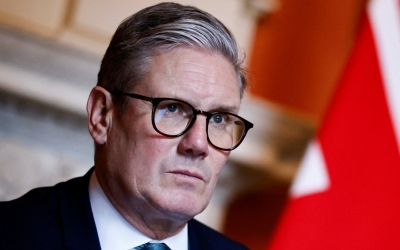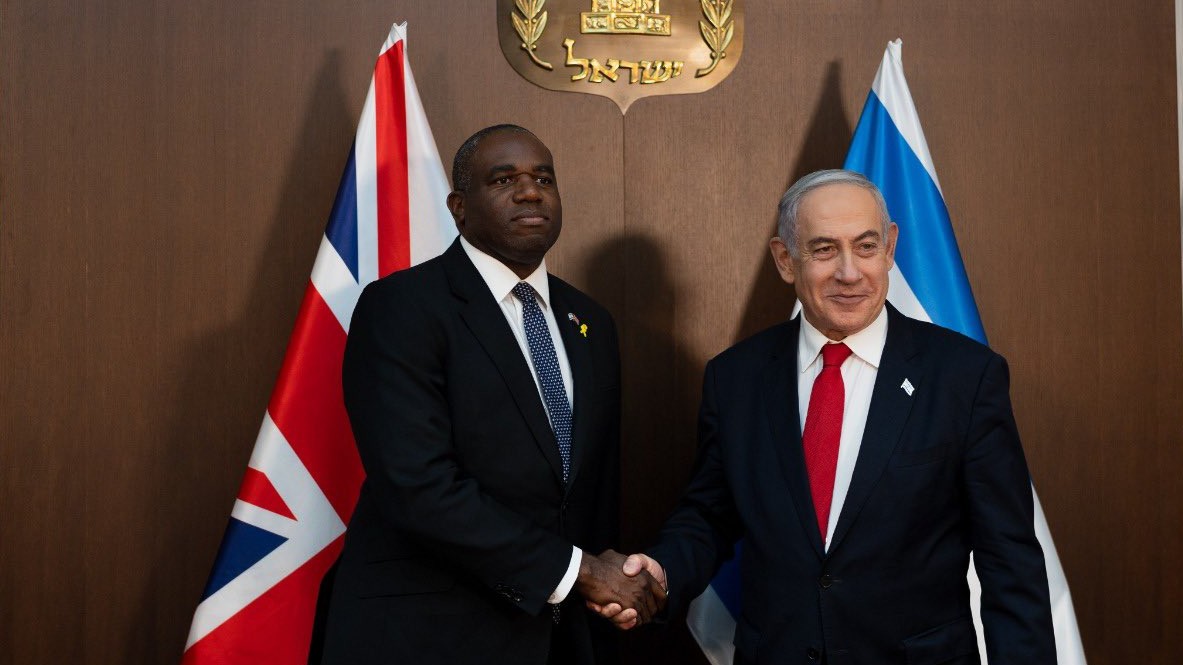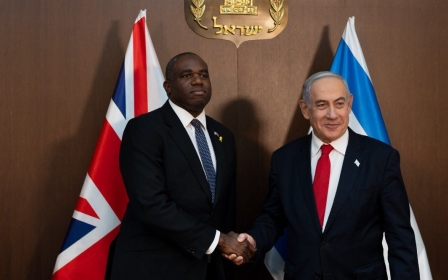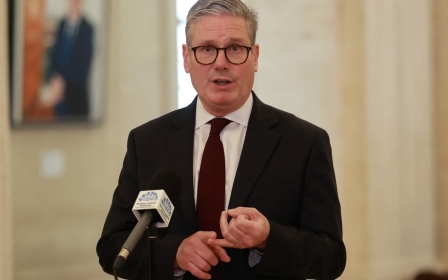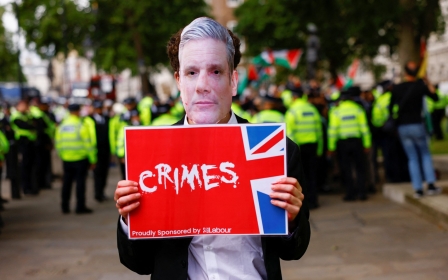War on Gaza: Don't expect Labour to radically change the UK's position on Israel

Foreign Secretary David Lammy’s visit to Israel and the Palestinian Territories just over a week after Labour won a landslide election suggests the new UK government is placing renewed emphasis on the Gaza war.
At his meetings, with both Israeli Prime Minister Benjamin Netanyahu and, separately, the prime minister of the Palestinian Authority (PA), Mohammad Mustafa, Lammy called for an “immediate” ceasefire.
This is a departure from the previous Conservative government’s line, which called only for a “humanitarian pause" that would hopefully lead to a “long-term sustainable ceasefire”.
For those hoping that Labour’s election slogan of “change” might extend to foreign policy in the Middle East, such a shift is welcome.
After Labour lost four MPs in the election to independents objecting to Keir Starmer’s stance on Gaza, there is certainly a domestic incentive to be more proactive in ending the conflict.
New MEE newsletter: Jerusalem Dispatch
Sign up to get the latest insights and analysis on Israel-Palestine, alongside Turkey Unpacked and other MEE newsletters
However, Labour’s approach is unlikely to be radically different from that of the Conservatives. While we may see a change in style from Lammy and Starmer, for example placing greater emphasis on humanitarian aid and international law, structural realities will limit how much the UK is willing to do in Gaza and the wider region.
Foreign affairs
Whichever government was elected on 4 July would have had their approach to the Middle East shaped by two key structural realities.
The first is that the UK is in its weakest geopolitical position in decades. The western alliance in general is diminished, with the rise of China, the shift to a multipolar world and internal western divisions exacerbated by economic stagnation and the election of insular populists.
Follow Middle East Eye's live coverage of the Israel-Palestine war
But Brexit and Britain’s struggling economy have made the UK even weaker among western states than in the past. London therefore has less capacity and bandwidth to engage with and influence the Middle East, even if it wanted to.
This brings us to the second reality: that Britain doesn’t really want to get that involved in the Middle East.
Ever since the Brexit referendum of 2016, successive UK governments have put foreign policy on the back burner while they dealt with domestic issues, whether leaving the EU, the Covid-19 pandemic or the perilous state of the economy.
Neither the former prime minister, Rishi Sunak, nor Starmer placed much emphasis on foreign policy in the election campaign and the Labour leader has indicated that, as with his predecessor, the domestic agenda will take precedence.
When foreign affairs are prioritised, the Middle East today falls way down the list.
The two most important arenas to the UK are the US and Europe, key alliances that remain vital for UK security and prosperity that both need attention after recent fissures.
After that comes the war in Ukraine and the question of how to deal with China. The Middle East probably comes next.
The Gaza war has, understandably, pushed the region back onto the agenda in the UK, especially given domestic outrage at events after 7 October, but were it not for this, the Middle East would fall even further down the UK’s priority list.
There is the suspicion that the Labour leadership, like the Conservatives before them, and possibly other western leaders, would rather the Gaza war swiftly finish so that they can return to geopolitical priorities elsewhere.
Limitations
UK policy on Gaza is therefore conditioned by these limitations. The UK knows it lacks the power to seriously influence the situation.
Although many have called for London to halt its arms sales to Israel, which might boost its moral stance, it provides less than one percent of the arms being used so would not likely shift Netanyahu’s approach.
Similarly, its humanitarian clout and sway over the PA is negligible, while recognising a Palestinian state, a promise in Labour’s manifesto, would do little to change realities on the ground.
London may also see Gaza through the lens of its other geopolitical priorities. Whatever the personal concerns of Labour’s leaders, some favouring Israel while others support the Palestinians, they recognise, as Sunak did, the strategic importance of remaining aligned with the United States’ (and the EU’s) broad pro-Israel stance.
This is not unique to Gaza, and structural realities will likely shape most of Labour’s engagement with the Middle East as it did the Conservatives’.
Labour party members may have concerns about the authoritarian practices of Gulf governments, but London needs investment, trade, arms sales and diplomatic alignment from these wealthy petrostates
Labour party members may have concerns about the authoritarian practices of Gulf governments, but London needs investment, trade, arms sales and diplomatic alignment from these wealthy petrostates. As has long been the case for UK leaders, this will likely trump any ethical concerns.
Similarly, Labour has little desire to be sucked into confrontation with Iran but if, for example, the US became more aggressive towards Tehran, London would be under pressure to support its ally. This occurred under the last Trump presidency and could be amplified should the ex-president be re-elected.
Of course, we may see some minor changes under Labour. Lammy has already spoken of wanting to put climate change higher up the agenda and desiring better relations with the Global South, both of which might impact London’s approach to the Middle East.
Similarly, there are suggestions that aid will play a fuller role in Labour’s foreign policy than before, which might mean a more prominent role in "forgotten" conflicts such as those in Sudan, Libya and Yemen.
However, these changes are largely superficial.
The Middle East as a region remains a comparative afterthought to London compared to other more pressing priorities - and when it does engage, it is highly restricted by the same structural limitations that the Conservatives faced.
Labour’s election has, understandably, been greeted with a wave of optimism by its supporters in the UK, but whatever dramatic change they’re hoping for at home will not likely be replicated in Britain's Middle East policy.
The views expressed in this article belong to the author and do not necessarily reflect the editorial policy of Middle East Eye.
Middle East Eye delivers independent and unrivalled coverage and analysis of the Middle East, North Africa and beyond. To learn more about republishing this content and the associated fees, please fill out this form. More about MEE can be found here.



